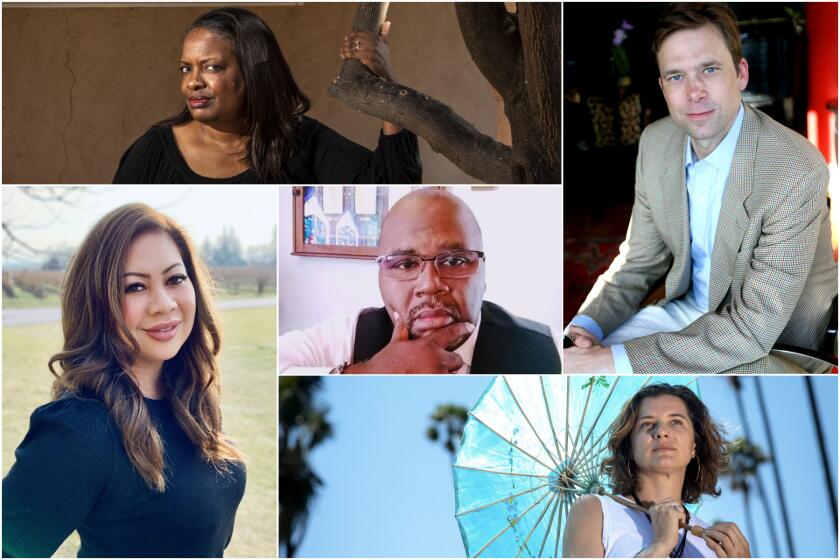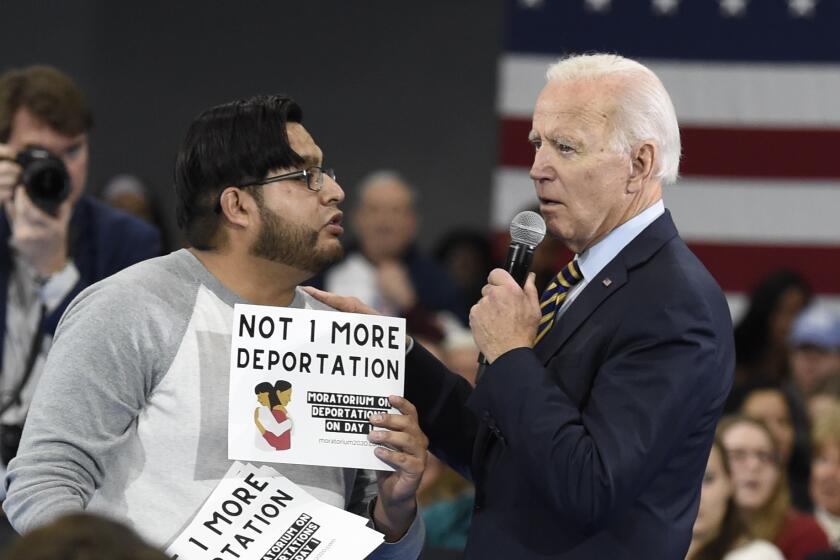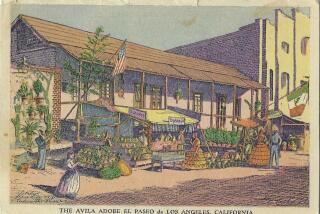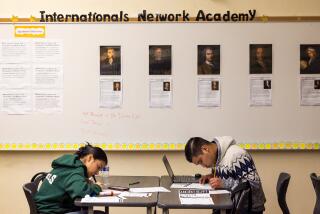Poets and historians reevaluate the ‘nation of immigrants’ on a Festival of Books panel
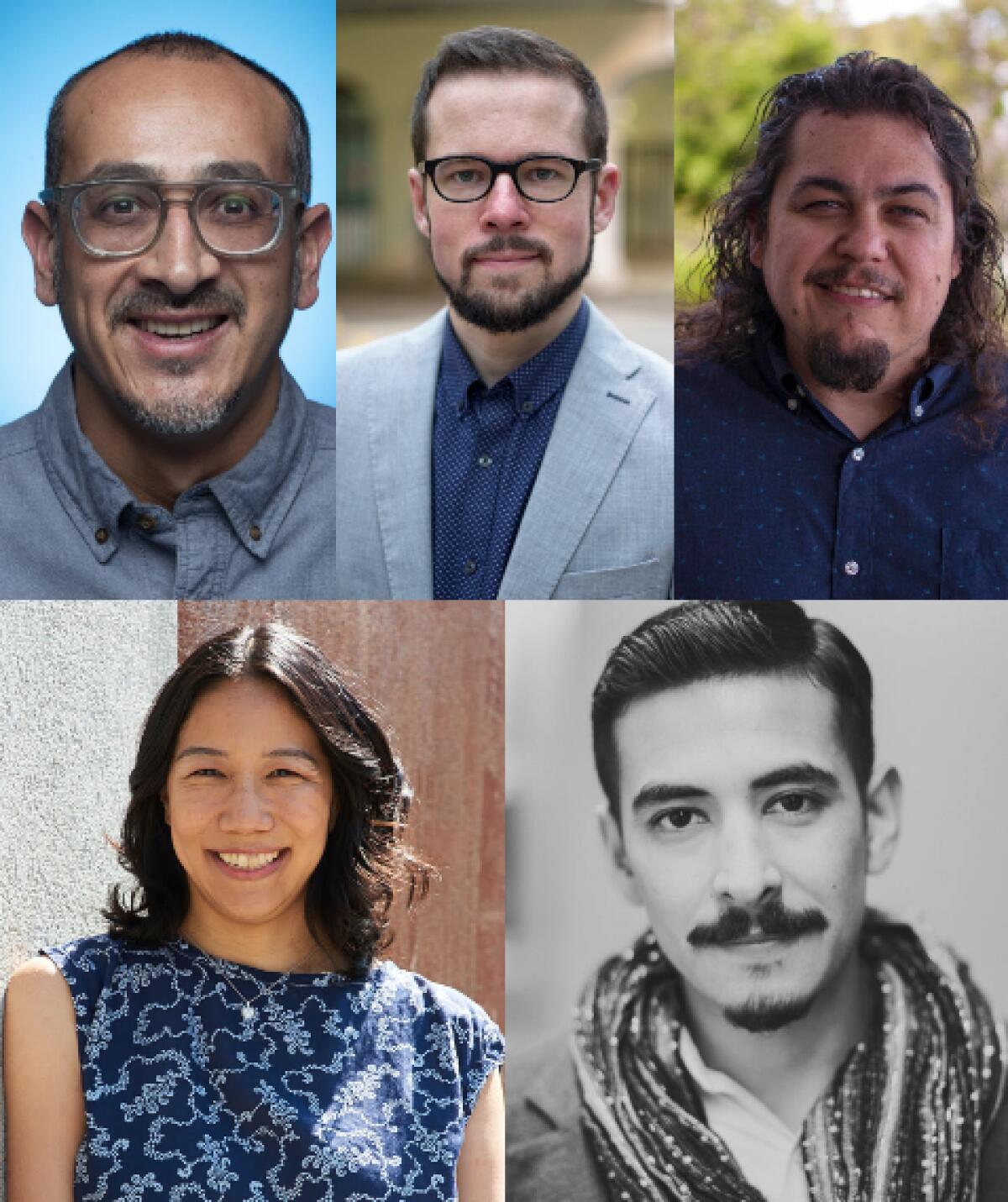
Over the last century, U.S. officials have removed more people than they’ve allowed to remain in the country on a permanent basis.
This fact, simple but shocking — at least for anyone who thinks of the U.S. as a nation of immigrants — came from Adam Goodman, author of “The Deportation Machine: America’s Long History of Expelling Immigrants,” during a Los Angeles Times Festival of Books panel Saturday on immigrants and American society. Goodman was joined in the discussion on the true history of U.S. immigration by poets Marcelo Hernandez Castillo and Anthony Cody, New York Times deputy national editor Jia Lynn Yang and Los Angeles Times reporter Daniel Hernandez, who moderated.
“Who belongs, and who doesn’t? Who’s an American, and who’s not?” Goodman asked, noting that immigration enforcement practices have always disproportionately targeted ethnic Mexicans — 9 out of every 10 deportees throughout U.S. history.
“In the acquisition of the white settler America, we either exploit the people or we remove them altogether,” said Cody. “Borderland Apocrypha,” Cody’s collection of poems reflecting on his biracial identity as an Irish-Mexican American, was a finalist for the 2020 Times Book Prize in poetry.
In his memoir ‘Children of the Land,’ poet Marcelo Hernandez Castillo writes of border journeys, family separation and crossing a ‘threshold of invisibility.’
Yang said she was inspired to write her own work of history, “One Mighty and Irresistible Tide,” after considering her family’s good fortune in immigrating to this country.
“The book began,” Yang said, “as really kind of a personal project to understand why my family, which is from China and Taiwan, was even allowed to be here.”
She attributes the journey of her family and many others over the last few decades to the 1965 Immigration and Nationality Act, which opened entry significantly — and shifted demographics dramatically in states like California.
“I suspect that for many people, especially if your family came from outside of Europe, the story of why your family is here is completely embedded into the story of this law,” Yang said.
Many diverse activists were involved in passing the law, signed by President Lyndon B. Johnson, which eliminated very strict ethnic quotas limiting immigration almost exclusively to Western Europe.
Yang said communities like today’s San Gabriel Valley would never have been possible had the country maintained its de facto self-definition as what she called a “white, ethnic nation-state.”
Over time, Yang later noted, the U.S. also developed impossible-to-follow laws around immigration, policies like the visa system that didn’t exist 100 years ago. That maze of bureaucracy served to distance Washington lawmakers from the individuals affected by them.
The 26th Los Angeles Times Festival of Books is going virtual again this year. The event kicks off April 17 at 10 a.m. Here’s how to watch.
“Having been undocumented, even once you become a citizen, it almost feels like you belong to an alternate form of citizenship,” said Castillo, author of the memoir “Children of the Land,” about growing up in the U.S without legal status.
For Castillo, it wasn’t just the confusing bureaucracy families like his had to contend with but also the blurring of immigration policy with crime enforcement — which breeds fear, hypervigilance and paranoia.
“I naively believed as a teenager that if I could speak English well enough ... that I could somehow navigate my way out of a possible deportation,” he said. “That I could navigate myself away from the eye of enforcement.”
Cody spoke of a similar psychic weight when describing the duality of his immigrant heritage. “My parents and my grandparents have always struggled with, ‘What room do you walk into?’ and ‘Who are you?’ and how you present yourself.”
In February, the Biden administration unveiled an immigration reform bill, which included a symbolic move away from the word “alien” in U.S. code. Goodman saw the word change as a step forward but not a particularly significant one.
Reform advocates have argued that ‘illegal alien’ dehumanizes migrants. The Biden administration plans to drop ‘alien’ from use. How language shapes immigration policy.
He noted that earlier deportation-first policies had a “bipartisan history” and that any meaningful change would likely result from sustained pressure by activists, organizers and the many migrants leading the effort.
For Yang, it was a matter of matching the lofty rhetoric of the American dream with a starkly different reality: “If we loved immigrants, how can we justify the way that we treat undocumented people in this country? ... You can pass these laws here and there, but until you deal with these very basic, moral questions around immigration and our cultural identity, and what it is, these camps — they’re not gonna stop.”
More to Read
Sign up for our Book Club newsletter
Get the latest news, events and more from the Los Angeles Times Book Club, and help us get L.A. reading and talking.
You may occasionally receive promotional content from the Los Angeles Times.
